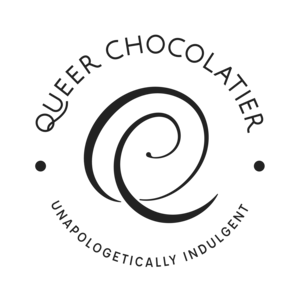Organic Beans Means Organic Chocolate!
60kg of organic cocoa beans from Lachuá, Guatamala
For Queer Chocolatier’s second proper sack of cocoa beans, I selected Lachuá Guatemala for the origin and I noticed there was the option to have organic beans for purchase. I went for it!
Organic production is very important, but it can be misunderstood in the whole noisy conversation around our food systems.
When terms to communicate how our food is produced become primarily marketing terms rather than relationship terms, confusion can set in.
What do I mean by that? How am I alleviating confusion? Perhaps I’m not.
If someone is orthodox about buying only organic foods, they can fall into the trap of just selecting the products that have the label of organic and not examine more about the product itself. A product might be produced using organic methods but might not taste great. Another product might be similarly produced but not have gone through the process of becoming certified as organic and not be in the selection pool for those who shop purely organic. And, as a specific example, organic almonds are almost extensively grown as mono-crops, which can stress the environment in its own unique ways.
Those are just three simplistic examples of what relying on organic as marketing terms can include or exclude.
The main takeaway here is that there is no silver bullet to making food choices as there is always some shades of gray present in our society. We need to establish what our goals are for when we do purchase and make sure our goals align with our values, not just as a small business in my instance, but in everyday purchases as consumers we can make these efforts within the bounds presented. I know full well that our purchasing options are not evenly or equally (or justly) distributed either. That also belongs as a part of this conversation and it not as much as it should.
In the chocolate and cocoa industry, I have found that direct trade is a more nuanced way in which to build the purchasing relationships. Such relationships are built on trust and transparency. I trust that the people at Uncommon Cacao have built strong, healthy relationships with the farmers in the countries of origin and that helps me make better purchasing decisions. They provide extensive information that details the process of how the beans are grown, harvested, fermented, dried, what is the price paid at farm gate, who the farmers are, and more.
That relationship is bedrock. Having that relationship established first allows me to then make other decisions, such as in this instance of choosing to buy certified organic cocoa beans from one of the cooperatives with which Uncommon Cacao partners.
The relationship itself matters to me more than certifications. My business model centers relationships in every facet of how we conduct business. Certifications are not substitutes for relationships, in my view. Others may, and can and do, disagree. To each their own but this is the way I choose to do business.
To that end, I will be making organic chocolate from these beans by also using organic cane sugar. The inclusions that I add to my (eventual) bars or the flavors of truffles might not be organic, but the base chocolate will be so long as these beans last. And, because of the nature of the production practices and certification process, organic beans cost more to buy and the chocolate made from the beans carries more value. While I have the organic beans in my production, there will be a slight price increase to make up for the difference in purchase price.
Our food system is mighty complex and there are countless people who are studying our system and more who work within the system who are trying to make sense of it all. Everyday consumers should not be expected to solve all of the issues contained within. But there are some ways in which we can advocate for improvements to the system as a whole: we can continue to learn about how our food is produced, we can pressure our legislators to make better food and agricultural policies, we can grow some of our own food (even a kitchen garden of herbs makes an impact!).
I take my responsibility very seriously in each of those areas and beyond. I, too, am hungry for change and chocolate!

